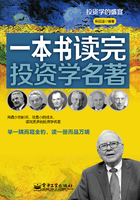In history this error is far more disgraceful.Indeed, there is no fault which so completely ruins a narrative in the opinion of a judicious reader.We know that the line of demarcation between good and bad men is so faintly marked as often to elude the most careful investigation of those who have the best opportunities for judging.Public men, above all, are surrounded with so many temptations and difficulties that some doubt must almost always hang over their real dispositions and intentions.The lives of Pym, Cromwell, Monk, Clarendon, Marlborough, Burnet, Walpole, are well known to us.We are acquainted with their actions, their speeches, their writings; we have abundance of letters and well-authenticated anecdotes relating to them: yet what candid man will venture very positively to say which of them were honest and which of them were dishonest men? It appears easier to pronounce decidedly upon the great characters of antiquity, not because we have greater means of discovering truth, but simply because we have less means of detecting error.The modern historians of Greece have forgotten this.Their heroes and villains are as consistent in all their sayings and doings as the cardinal virtues and the deadly sins in an allegory.We should as soon expect a good action from giant Slay-good in Bunyan as from Dionysius; and a crime of Epaminondas would seem as incongruous as a faux-pas of the grave and comely damsel called Discretion, who answered the bell at the door of the house Beautiful.
This error was partly the cause and partly the effect of the high estimation in which the later ancient writers have been held by modern scholars.Those French and English authors who have treated of the affairs of Greece have generally turned with contempt from the simple and natural narrations of Thucydides and Xenophon to the extravagant representations of Plutarch, Diodorus, Curtius, and other romancers of the same class,--men who described military operations without ever having handled a sword, and applied to the seditions of little republics speculations formed by observation on an empire which covered half the known world.Of liberty they knew nothing.It was to them a great mystery--a superhuman enjoyment.They ranted about liberty and patriotism, from the same cause which leads monks to talk more ardently than other men about love and women.A wise man values political liberty, because it secures the persons and the possessions of citizens; because it tends to prevent the extravagance of rulers, and the corruption of judges; because it gives birth to useful sciences and elegant arts; because it excites the industry and increases the comforts of all classes of society.These theorists imagined that it possessed something eternally and intrinsically good, distinct from the blessings which it generally produced.They considered it not as a means but as an end; an end to be attained at any cost.Their favourite heroes are those who have sacrificed, for the mere name of freedom, the prosperity--the security--the justice--from which freedom derives its value.
There is another remarkable characteristic of these writers, in which their modern worshippers have carefully imitated them--a great fondness for good stories.The most established facts, dates, and characters are never suffered to come into competition with a splendid saying, or a romantic exploit.The early historians have left us natural and simple descriptions of the great events which they witnessed, and the great men with whom they associated.When we read the account which Plutarch and Rollin have given of the same period, we scarcely know our old acquaintance again; we are utterly confounded by the melo-dramatic effect of the narration, and the sublime coxcombry of the characters.
These are the principal errors into which the predecessors of Mr Mitford have fallen; and from most of these he is free.His faults are of a completely different description.It is to be hoped that the students of history may now be saved, like Dorax in Dryden's play, by swallowing two conflicting poisons, each of which may serve as an antidote to the other.
The first and most important difference between Mr Mitford and those who have preceded him is in his narration.Here the advantage lies, for the most part, on his side.His principle is to follow the contemporary historians, to look with doubt on all statements which are not in some degree confirmed by them, and absolutely to reject all which are contradicted by them.While he retains the guidance of some writer in whom he can place confidence, he goes on excellently.When he loses it, he falls to the level, or perhaps below the level, of the writers whom he so much despises: he is as absurd as they, and very much duller.
It is really amusing to observe how he proceeds with his narration when he has no better authority than poor Diodorus.He is compelled to relate something; yet he believes nothing.He accompanies every fact with a long statement of objections.His account of the administration of Dionysius is in no sense a history.It ought to be entitled--"Historic doubts as to certain events, alleged to have taken place in Sicily."This scepticism, however, like that of some great legal characters almost as sceptical as himself; vanishes whenever his political partialities interfere.He is a vehement admirer of tyranny and oligarchy, and considers no evidence as feeble which can be brought forward in favour of those forms of government.
Democracy he hates with a perfect hatred, a hatred which, in the first volume of his history, appears only in his episodes and reflections, but which, in those parts where he has less reverence for his guides, and can venture to take his own way, completely distorts even his narration.















